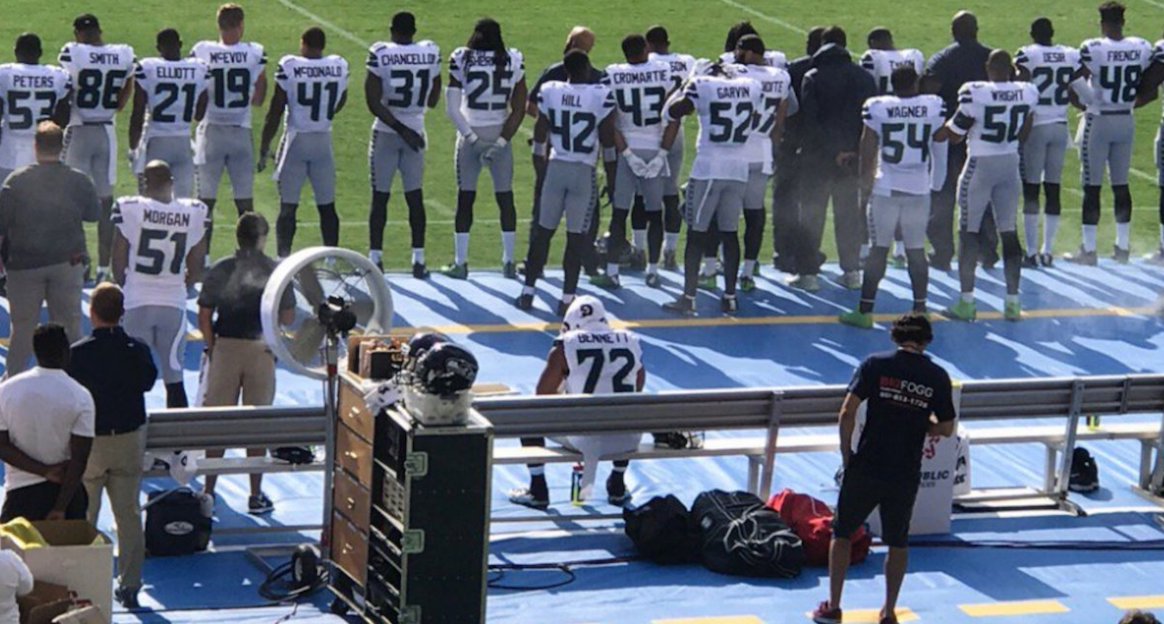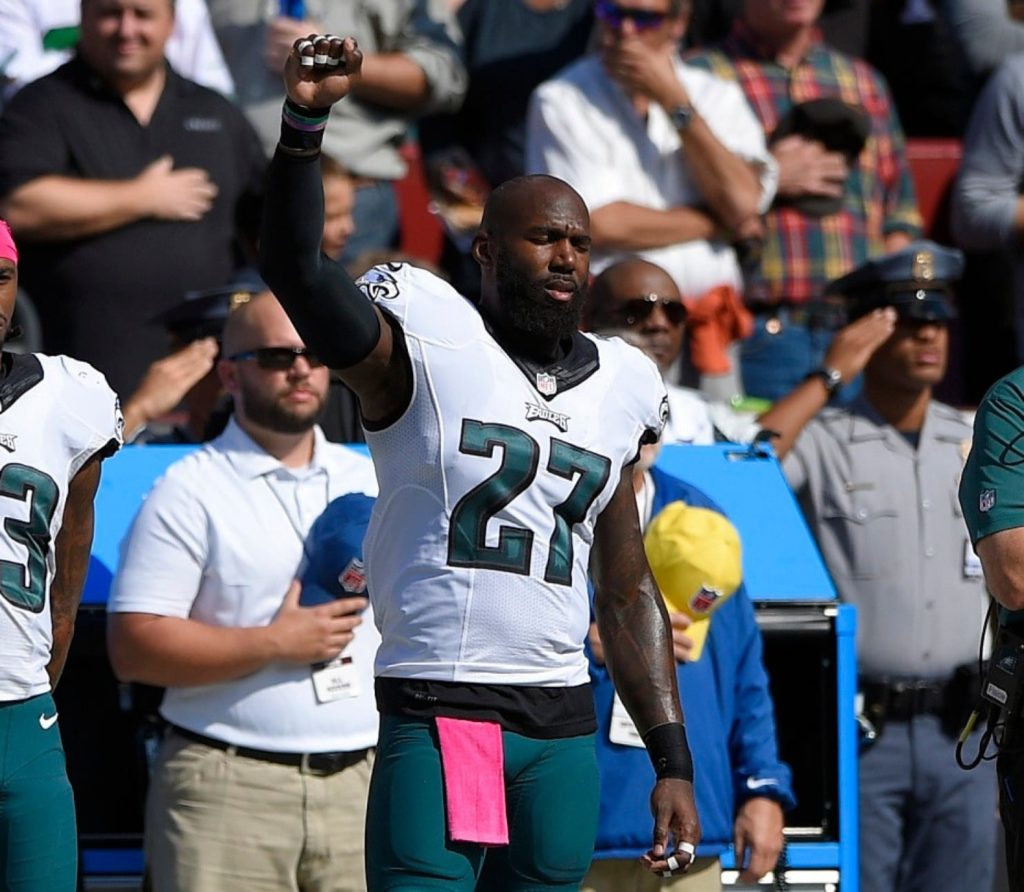
Malcolm Jenkins, Michael Bennett Take Baton From Unemployed Colin Kaepernick
On Father’s Day, Seattle police fatally shot an African-American woman named Charleena Lyles after she called in a burglary report. Lyles had a documented history of mental illness and brandished a knife but the two officers did not ask her to put away the weapon. They just shot her, in front of two of her four children.
Last month, Seahawks defensive end Michael Bennett, along with his wife Pele helped put together a benefit and rally in Seattle’s Judkins Park to raise money for Lyles’s family and awareness for police brutality.
One of the NFL’s most intellectually curious players, Bennett has long been an outspoken activist. He was seen raising a fist during the national anthem last year in solidarity with Colin Kaepernick. He backed out of an NFL players’ trip to Israel last offseason, not wanting to be used as propaganda for a state sponsored goodwill mission. He recently announced his upcoming book with the blunt title of, “Things That Make White People Uncomfortable.” So it is hardly surprising that Bennett to made a sweeping statement of activism during Sunday’s national anthem, sitting with a towel over his head, and announcing plans to silently protest the entire year.
“First of all, I want people to understand that I love the military,” Bennett told reporters after the game. “My father’s in the military. I love hot dogs like any other American. I love football like any other American. But I don’t love segregation. I don’t love riots or oppression.
“I just want to see people have the equality that they deserve. And I want to be able to use this platform to continuously push the message of that.”
Bennett is enlightened. He knows the NFL is merely a job that encompasses a small sliver of life. He knows he has a fleeting platform to share his stances, to empower others to action. He is a father, a husband and an activist first. Then he is a football player, (albeit a damn good one.)
Colin Kaepernick may be disturbingly unemployed but, as seen in the league’s first week of action, his legacy is reverberating throughout the NFL. The protesting from last season smoothly started again Thursday when Eagles safety Malcolm Jenkins raised a fist during the anthem of the Eagles-Redskins game as a sign of racial inequality.
“After spending time with police officers on ride-alongs, meeting with politicians on the state and federal level and grass roots organizations fighting for human rights, it’s clear that our criminal justice system is still crippling communities of color through mass incarceration,” Jenkins said after the game.
Like Bennett, Jenkins has long been a thinking human first and athlete second. He has lobbied Congress on criminal justice reform, sat on numerous panels to discuss societal justice and athlete activism, and been a mainstay in his own community.
And to think that Jenkins’s first highly publicized act of activism on an NFL stage this season came before Charlottesville.

On Saturday night as a national was emotionally damaged in the aftermath of Charlottesville, Raiders rusher Marshawn Lynch sat during his team’s anthem. While Lynch assured head coach Jack Del Rio that he had been sitting for a decade, the internet quickly found contrasting evidence. Then came Bennett’s strong statement that temporarily masked the question of whether or not Lynch’s protest was a protest.
Either way, there will undoubtedly be more NFL players that join because the confluence of racism-driven events in this country is too powerful for an intellectually awakened athlete with a platform to compartmentalize.
If the NFL thought turning its back on Kaepernick would deter other athletes from following in his footsteps, it was woefully naïve. Bennett has been seen on several occasions, including official NFL duties, donning a t-shirt that reads “I Know My Rights.” The shirt comes from Kaepernick’s Know My Rights camp that empowers underprivileged kids in inner cities to understand their local resources and to examine their ancestries. Bennett is well aware of his own rights, and he WILL NOT be silenced.
But there is one important lingering question: in the wake of Charlottesville, how many protesting NFL players will be white?
“You need a white guy to join the fight. The white guy is super important to the fight,” Seahawks defensive end Michael Bennett told the Seattle Times last September. “For people to really see social injustices, there must be someone from the other side of the race who recognizes the problem, because a lot of times if just one race says there’s a problem, nobody is realistic about it.”
Rage has only exponentially increased since, say, January 20th just to throw out a date, and the volume of athletes on the fence should never been more empowered than today to take a stand.
In just a week of meaningless football games, the optics of this season are already fascinating. Colin Kaepernick may have banished from the league for peacefully expressing his first amendments, but his spirit remains.



